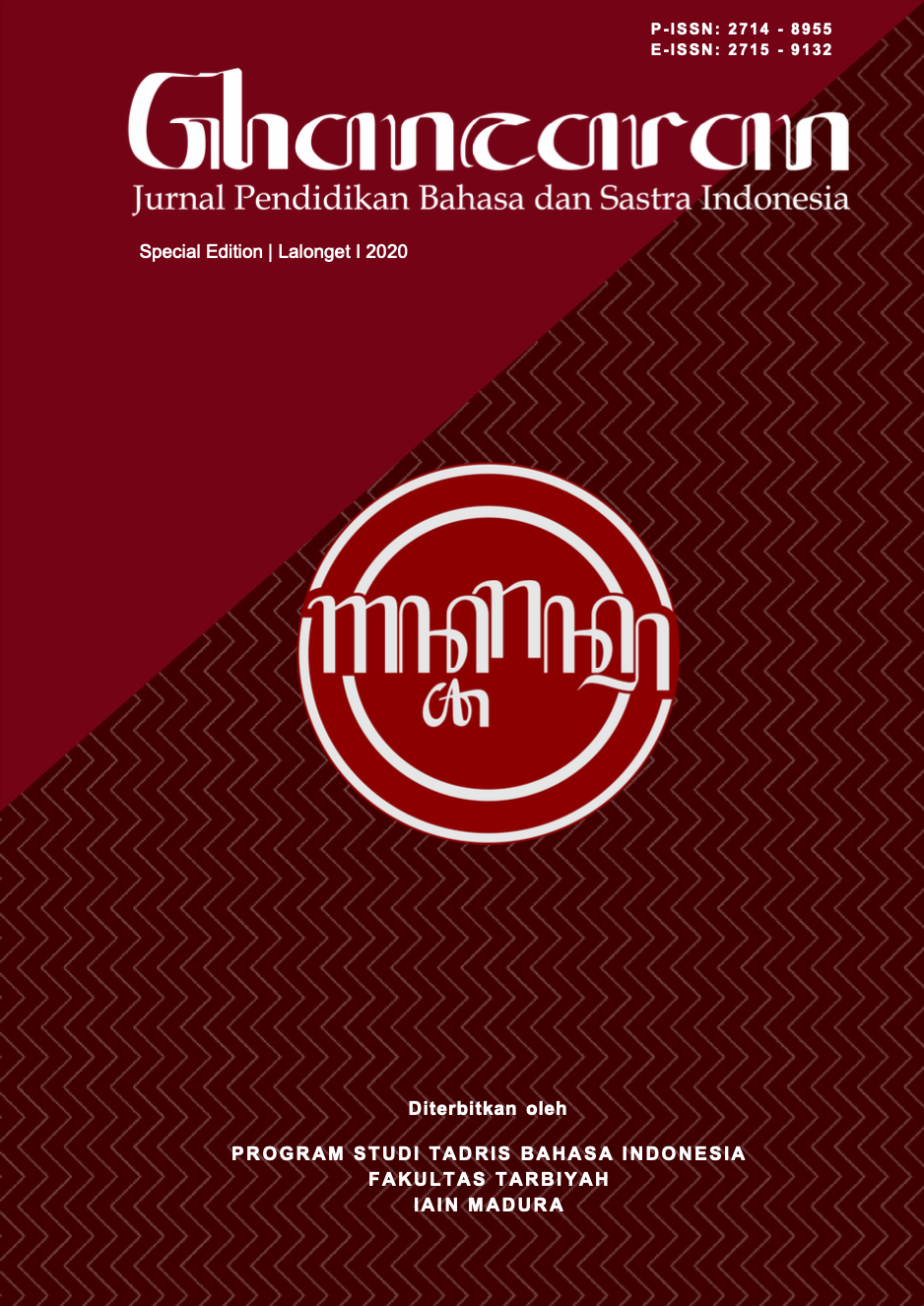TINDAK TUTUR DALAM TRADISI PERNIKAHAN MASYARAKAT MADURA PADA ERA MILLENIAL: KAJIAN SOSIOPRAGMATIK
 Abstract views: 355
,
Abstract views: 355
,
 XML downloads: 301
XML downloads: 301
Abstract
Downloads
References
Adriana, Iswah. 2018. Pragmatik. Surabaya: Pena Salsabila.
Aslinda, dan Syafyahya Leni. 2014. Pengantar Sosiolinguistik. Bandung: PT. Refika Aditama.
Cummings, Louise. 2007. Pragmatik. Yogyakarta: Pustaka Pelajar.
Moleong, Lexy J. 2011. Metodologi Penelitian Kualitatif: Edisi Revisi. Bandung: PT. Remaja Rosdakarya.
Yanti, Prima Gusti dkk. 2016. Bahasa Indonesia: Konsep Dasar dan Penerapan. Jakarta: PT. Grasindo.
Ghancaran: Jurnal Pendidikan Bahasa dan Sastra Indonesia uses an Open Access Policy under the Creative Commons Attribution-ShareAlike 4.0 International License. Authors publishing in this journal agree to the following terms:
- Ghancaran Journal holds the copyright and grants the journal rights for first publication with the work simultaneously licensed under a

The work is distributed under Creative Commons Attribution-ShareAlike 4.0 International License which allows others to share, copy, and redistribute the material in any media or format and adapt, remix, change, and develop the material even for commercial purposes, as long as it is stated credit and license derivative works under similar terms. - Authors may make additional contractual arrangements for non-exclusive distribution of the journal's published work version.
- Authors are permitted to post their work online (e.g., in institutional repositories or on their websites) before and during submission, as doing so may lead to productive exchange.



















